Recipients of the award are invited to give the Presidential Faculty Award Lecture to provide an opportunity for faculty members to learn about the work of their colleagues from other disciplines. Recipients also receive a research stipend of $5,000.
Presidential Faculty Award Lecture
The Presidential Faculty Award was established by President Christina H. Paxson in 2013 to recognize members of Brown’s distinguished faculty who are conducting especially important and innovative scholarship.
Breadcrumb
Presidential Faculty Award Lecture Recipients
Steven Sloman (Fall 2025)
Professor, Cognitive and Psychological Sciences
“Consequences of the Psychology of Decision Making: How Sacred Value Frames Lead Us Astray”
Steven Sloman has taught at Brown since 1992. He studies higher-level cognition. He is a Fellow of the Cognitive Science Society, the Society of Experimental Psychologists, the American Psychological Society, the Eastern Psychological Association, and the Psychonomic Society. Along with scientific papers and editorials, his published work includes a 2005 book Causal Models: How We Think about the World and Its Alternatives, a 2017 book The Knowledge Illusion: Why We Never Think Alone co-authored with Phil Fernbach, and the 2025 The Cost of Conviction: How Our Deepest Values Lead Us Astray. He has been Editor-in-Chief of the journal Cognition, Chair of the Brown University faculty, and created Brown’s concentration in Behavioral Decision Sciences.
Jennifer B. Nuzzo (Spring, 2025)
Director of the Pandemic Center, Professor of Epidemiology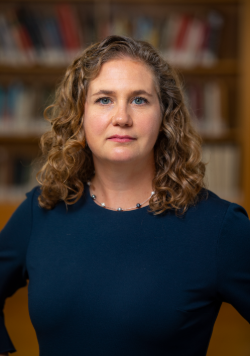
“Pandemic-Proofing the Future”
Dr. Nuzzo is Professor of Epidemiology and Director of the Pandemic Center at Brown University School of Public Health. An epidemiologist by training, her work focuses on global health security, public health preparedness and response, and health systems resilience. Together with colleagues from the Nuclear Threat Initiative and Economist Impact, she co-leads the development of the first-ever Global Health Security Index, which benchmarks 195 countries’ public health and healthcare capacities and capabilities, their commitment to international norms and global health security financing, and socioeconomic, political, and environmental risk environments. She also founded the Outbreak Observatory, which conducts, in partnership with frontline public health practitioners, operational research to improve outbreak preparedness and response. Prior to coming to Brown, Dr. Nuzzo was an Associate Professor at the Johns Hopkins Bloomberg School of Public Health and the Johns Hopkins School of Medicine. She was also a Senior Scholar at the Johns Hopkins Center for Health Security.
Massimo Riva (2024, Fall)
Professor of Italian Studies, Interim Chair of Italian Studies
"The New Chameleon: Simulation as a Paradigm (Shift) for Digital Humanism"
Massimo Riva was educated in Italy (Laurea in Filosofia, University of Florence, 1979) and the United States (Ph.D. in Italian literature, Rutgers University, 1986). He is the author of four books published in Italy: on literary maladies in the 18th century (Saturno e le Grazie, Palermo, 1992), national identity in the 19th-century (Malinconie del Moderno, Ravenna, 2001), literature in the digital age (Il Futuro della Letteratura, Naples, 2011), post-humanism and the hyper-novel (Pinocchio Digitale, Milan, 2012). Prof. Riva is the recipient of major grants from the National Endowment for the Humanities, and a Digital Innovation Fellowship from the American Council of Learned Societies and the Mellon Foundation. A series of interactive installations of the resulting Garibaldi moving panorama were featured in the U.K., Brazil, and across Italy (including the Sala Capitolare of the Italian Senate in Rome, the Sala del Risorgimento of the Palazzo Pubblico in Siena, and the Biblioteca Sala Borsa in Bologna). Prof. Riva's awards also include the Order of Merit of the Italian Republic (with the rank of Ufficiale) for his contribution to the dissemination of Italian culture in North America. Prof. Riva is the founder and co-curator of the Cinema Ritrovato on Tour film festival, a collaboration between Brown University and the Cineteca of Bologna.
Sohini Ramachandran (2023, Spring)
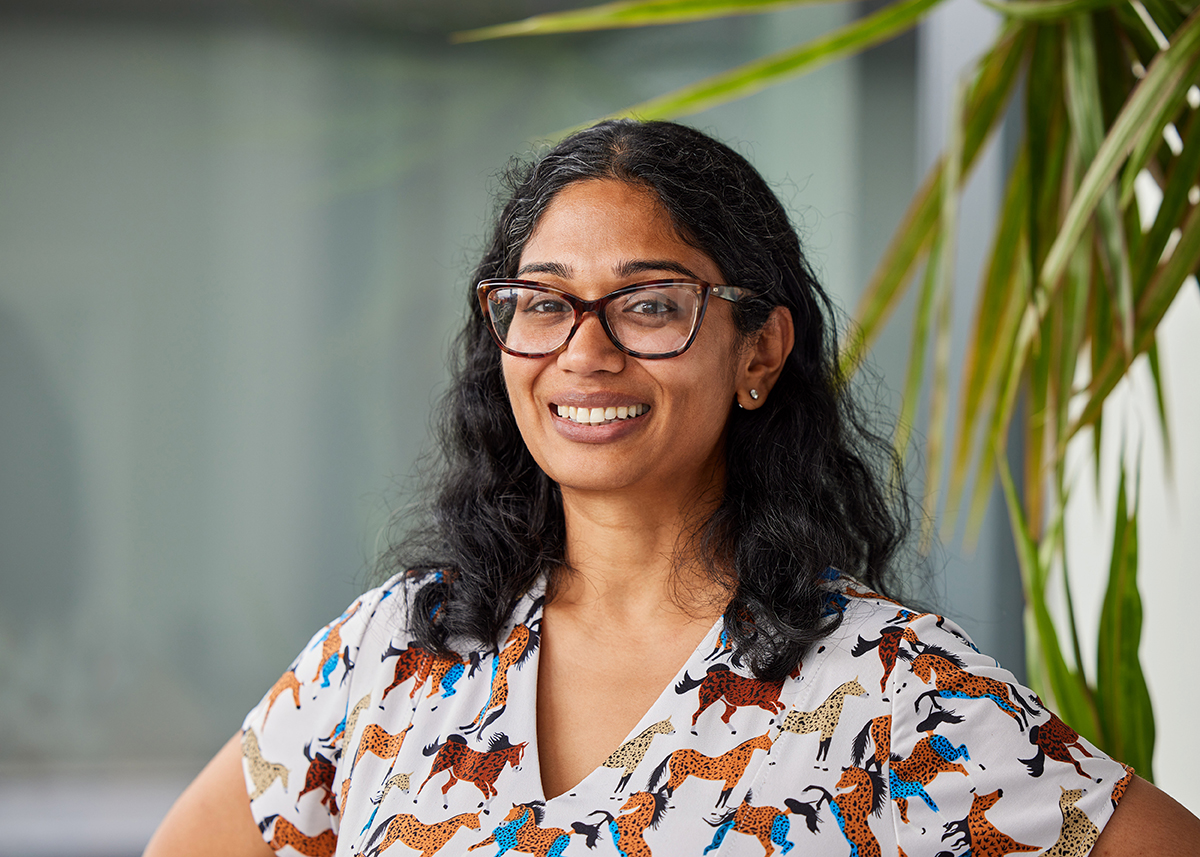 Director, Data Science Initiative, and Hermon C. Bumpus Professor of Biology
Director, Data Science Initiative, and Hermon C. Bumpus Professor of Biology
"We Are All Mutants: The Puzzles, Promise, and Predicaments of Human Population Genetics"
Sohini Ramachandran, the Hermon C. Bumpus Professor of Biology and director of the Data Science Initiative at Brown University, is a population geneticist studying the causes and consequences of human genetic variation. Her research has contributed to understanding of the crucial role population dynamics play in both shaping human genetic diversity and our ability to identify adaptive and disease-associated mutations. She completed her Ph.D. at Stanford in 2007 and was a junior fellow at the Harvard Society of Fellows before launching the Ramachandran Lab at Brown University.
Amanda Anderson (2022, Fall)
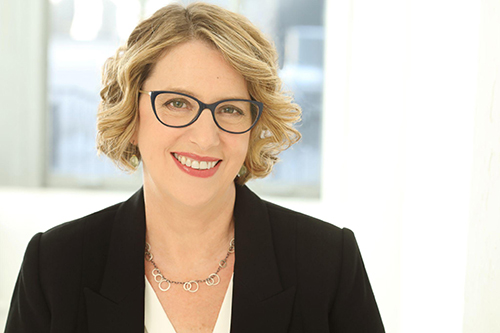 Director of the Cogut Institute for the Humanities Andrew W. Mellon Professor of English and Humanities
Director of the Cogut Institute for the Humanities Andrew W. Mellon Professor of English and Humanities
“Injury, Dignity, and the Literature on Rumination”
Amanda Anderson is the Andrew W. Mellon Professor of Humanities and English and director of the Cogut Institute for the Humanities. A literary scholar and theorist who has written on ethical and political topics across literature and culture from the 19th century through the present, she is the author, most recently, of “Character: Three Inquiries in Literary Study” (Chicago, 2019; with Rita Felski and Toril Moi), “Psyche and Ethos: Moral Life after Psychology” (Oxford, 2018) and “Bleak Liberalism” (Chicago, 2016). She delivered the Clarendon Lectures in English literature at Oxford University in 2015, and her past awards include a Guggenheim Fellowship and the Berlin Prize of the American Academy in Berlin.
Nitin R. Padture (2021, Spring)
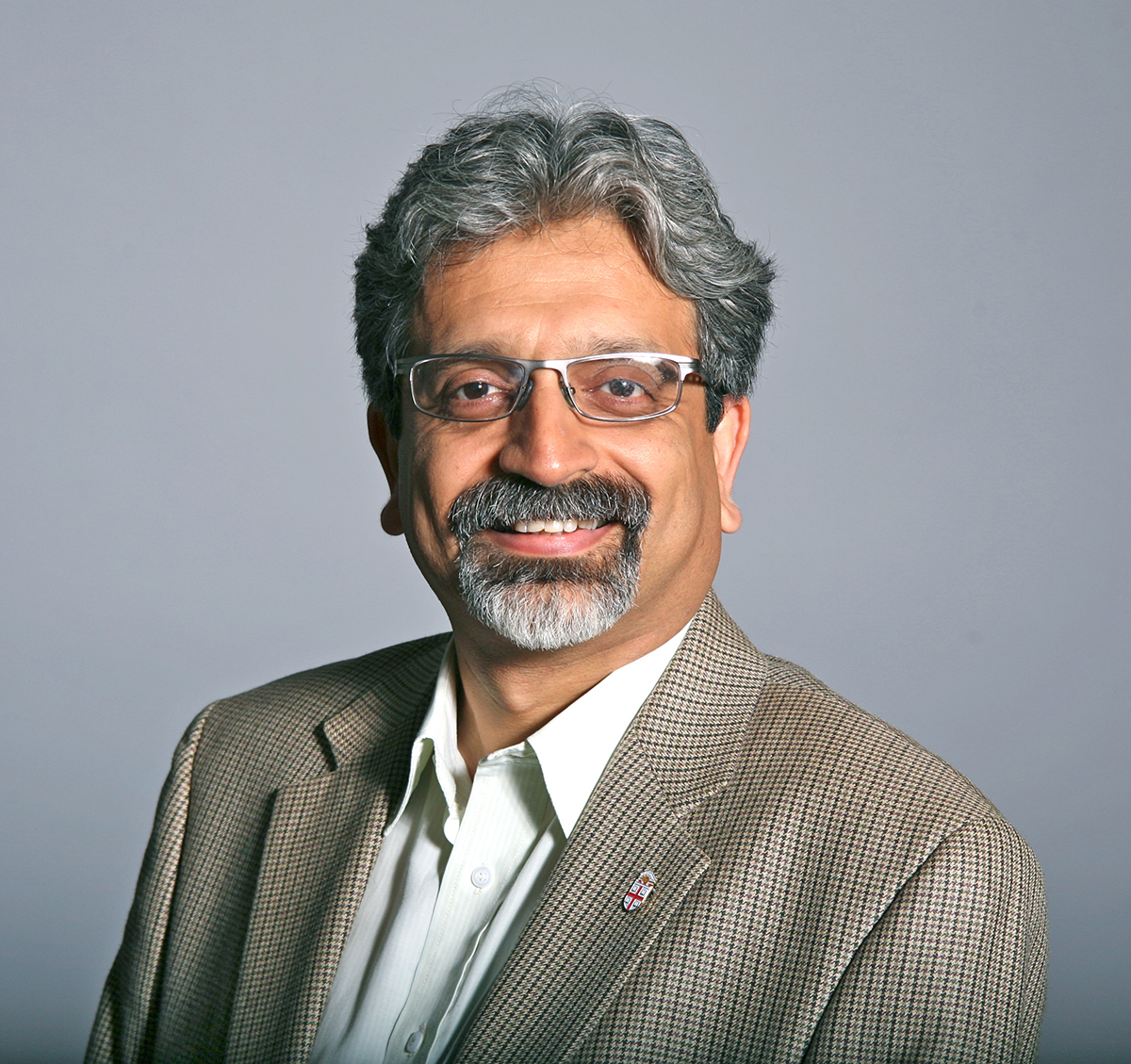 Otis E. Randall University Professor of Engineering, Director, Institute for Molecular and Nanoscale Innovation
Otis E. Randall University Professor of Engineering, Director, Institute for Molecular and Nanoscale Innovation
"The Promise of Innovations in Solar Photovoltaics"
Nitin P. Padture is the Otis E. Randall University Professor of Engineering and director of the Institute for Molecular and Nanoscale Innovation. His research interests include advanced ceramics and nanomaterials, with applications ranging from jet engines to solar photovoltaics. He has over 250 publications and seven patents.
Padture is an elected fellow of the American Ceramic Society and the American Association for the Advancement of Science. Prior to his arrival at Brown, Padture was the College of Engineering Distinguished Professor at The Ohio State University. He received his Ph.D. in materials science and engineering from Lehigh University in 1991.
Juliet Hooker (2020, Fall)
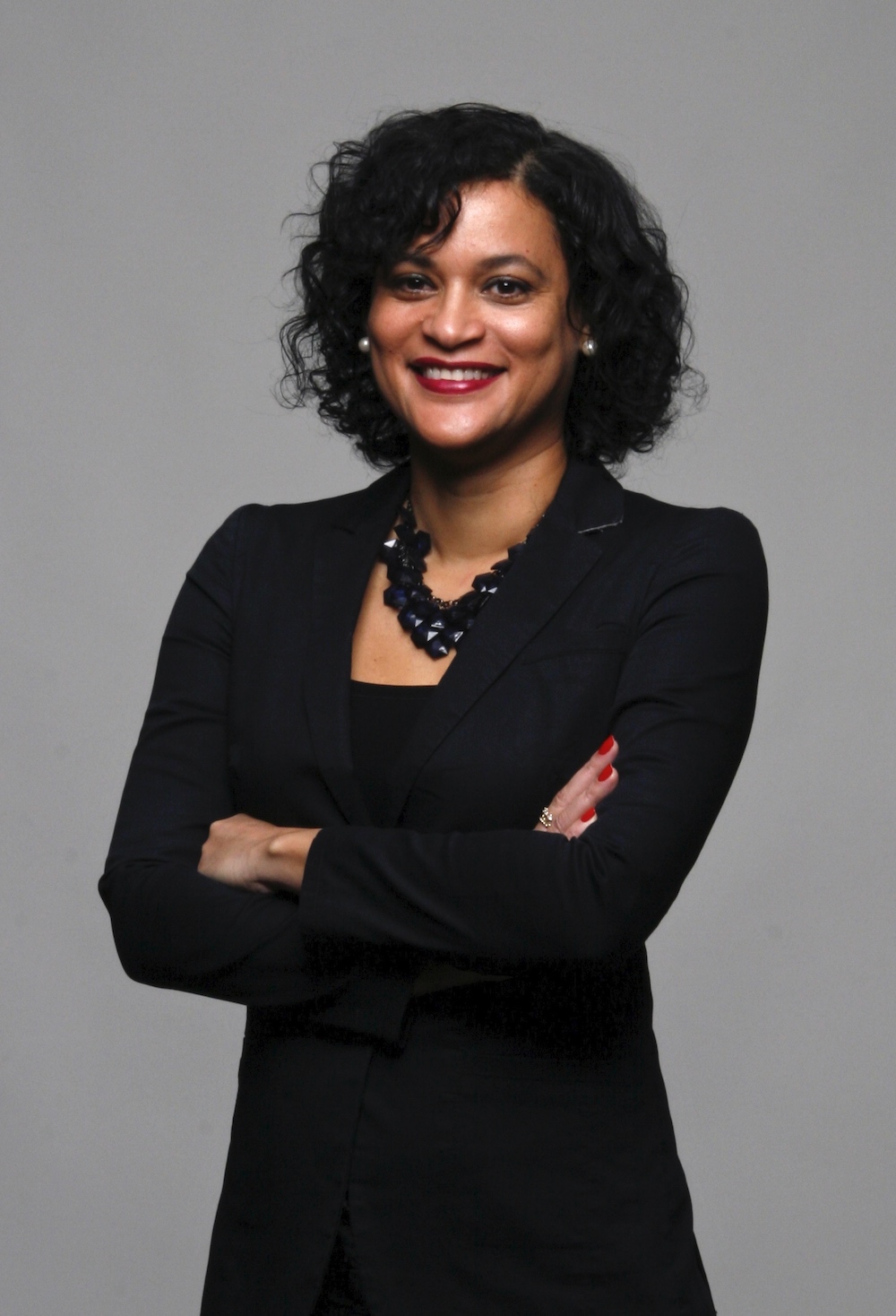 Professor of Political Science
Professor of Political Science
"Between Fact and Affect: Ida B. Wells and Harriet Jacobs on Black Loss"
Juliet Hooker is a political theorist specializing in racial justice, Latin American and Black political thought, and Afro-descendant and indigenous politics in Latin America. She is the author of “Race and the Politics of Solidarity” and the award-winning “Theorizing Race in the Americas: Douglass, Sarmiento, Du Bois, and Vasconcelos.” She has served as co-chair of the American Political Science Association’s Presidential Task Force on Racial and Social Class Inequalities in the Americas and has received numerous fellowships and awards. Her current book project, “Black Grief/White Grievance,” explores the role of loss in contemporary U.S. racial politics.
Shahzad Bashir (2020, Spring)
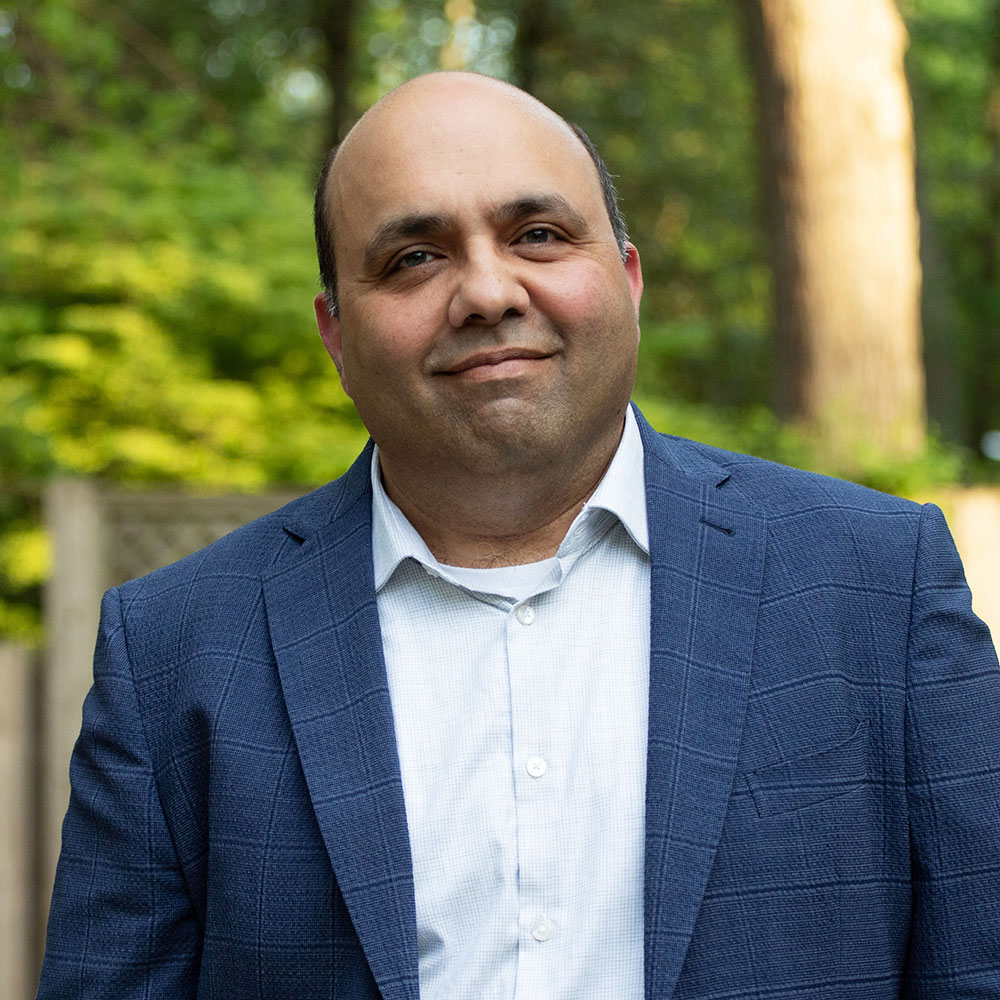 Aga Khan Professor of Islamic Humanities, Director of the Center for Middle East Studies
Aga Khan Professor of Islamic Humanities, Director of the Center for Middle East Studies
"Dwelling in a world of poetry"
Shahzad Bashir specializes in the intellectual and social histories of Iran and Central and South Asia. His most recent book was “Sufi Bodies: Religion and Society in Medieval Islam” (2011) and he is currently completing a monograph entitled “Islamic Pasts and Futures: Horizons of Time” that is a part of Brown’s Digital Publications Initiative. He has been a recipient of Carnegie, Guggenheim, Stanford Humanities Center, American Council of Learned Societies-Ryskamp, and National Endowment for the Humanities fellowships.
Jennifer Friedman (2019, Fall)
%20copy.jpg) Professor of Pediatrics and Epidemiology; Director, Lifespan Center for International Health Research
Professor of Pediatrics and Epidemiology; Director, Lifespan Center for International Health Research
"Treatment of Pregnant Women for Parasitic Diseases Globally: Using Evidence to Drive Policy Change"
Dr. Friedman’s research addresses how parasitic diseases, particularly helminth infections, cause morbidity among pregnant women and children. Her work has quantified the impact of schistosomiasis on pediatric undernutrition, anemia and cognitive impairment, including mechanisms mediating morbidity and optimal interventions to mitigate morbidity. Recent work has addressed the impact of treatment for parasitic diseases during human pregnancy and addressing barriers to uptake.
Michael L. Littman (2019, Spring)
%20copy.jpg) Professor of Computer Science, Co-director of the Humanity Centered Robotics Initiative
Professor of Computer Science, Co-director of the Humanity Centered Robotics Initiative
"Telling Machines What To Do"
Michael Littman studies machine learning and decision-making under uncertainty. He has earned multiple awards for teaching and his research has been recognized with three best-paper awards and two influential paper awards for his work on reinforcement learning, probabilistic planning and automated crossword-puzzle solving. Littman has served on the editorial boards for the Journal of Machine Learning Research and the Journal of Artificial Intelligence Research. He was general chair of International Conference on Machine Learning 2013 and program chair of the Association for the Advancement of Artificial Intelligence (AAAI) Conference 2013. He is co-director of Brown's Humanity Centered Robotics Initiative and a fellow of the Association for the Advancement of Artificial Intelligence and the Association for Computing Machinery. Littman enjoys performing with his family and is one of two Brown professors who appeared in a national ad campaign in 2016.
Dr. Amanda H. Lynch (2018, Fall)
 Director, Institute at Brown for Environment and Society, Lindemann Distinguished Professor, Department of Earth, Environmental and Planetary Sciences
Director, Institute at Brown for Environment and Society, Lindemann Distinguished Professor, Department of Earth, Environmental and Planetary Sciences
"Urgency in the Anthropocene"
Amanda Lynch obtained her Ph.D. in Atmospheric Sciences from the University of Melbourne in 1993, with a focus on polar climate modeling. Her current research comprises three streams – on the interactions between extreme climatic events and environmental governance; on Arctic climate variability and sea ice; and the role of Indigenous knowledges in adaptation to global change. She developed the first Arctic regional climate system model in 1993. She is a Fellow of the American Meteorological Society, the Australian Academy of Technological Sciences and Engineering, the Norwegian Scientific Academy for Polar Research, and the World Academy of Art and Science. At the United Nations World Meteorological Organization, she is a member of the Management Team for the Commission on Atmospheric Sciences and Co-Chair of the World Climate Research Programme Joint Science Committee. Her upcoming book with The MIT Press is co-authored with human geographer Siri Veland and is entitled Urgency in the Anthropocene (2018). Her favorite temperature is -20oC.
Anthony Bogues (2018, Spring)
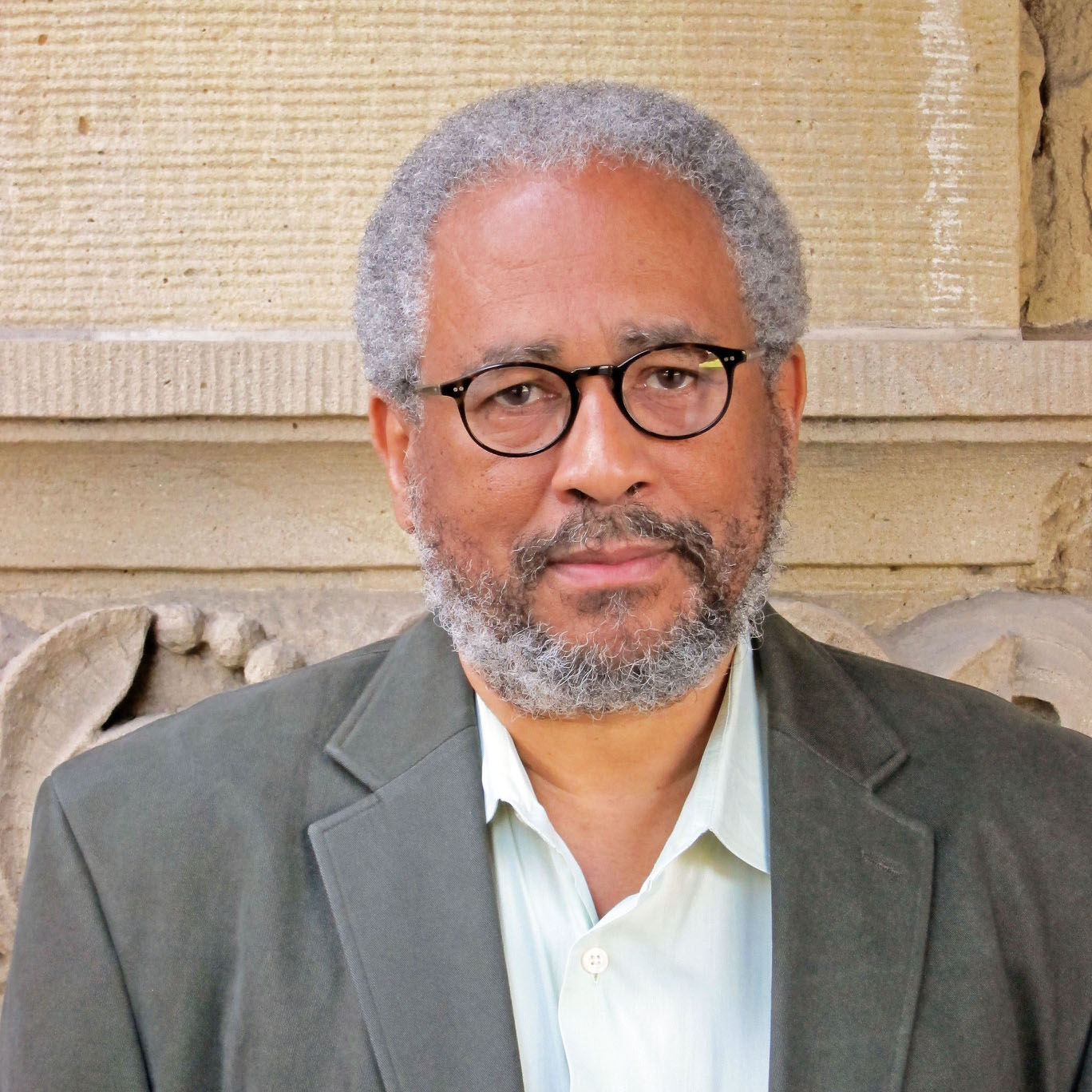 Asa Messer Professor of Humanities and Critical Theory; Director, Center for the Study of Slavery & Justice; Professor, Africana Studies
Asa Messer Professor of Humanities and Critical Theory; Director, Center for the Study of Slavery & Justice; Professor, Africana Studies
“Black Critique: Toward An Alternative Genealogy of Critical Thought”
Anthony Bogues is a writer, scholar and curator and the inaugural director of the Center for the Study of Slavery and Justice. He is the Asa Messer Professor of Humanities and Critical Theory. He is the author of “Caliban’s Freedom: The Early Political Thought of C.L.R. James”; “Black Heretics and Black Prophets: Radical Political Intellectuals”; “Empire of Liberty: Power, Freedom and Desire” and editor of the following: “From Revolution in the Tropics to Imagined Landscapes: the Art of Edouard Duval- Carrié”; “Metamorphosis: The Art of Edouard Duval-Carrié”; “After Man, Towards the Human: Critical Essays on Sylvia Wynter” and “The George Lamming Reader: The Aesthetics of Decolonization.” He recently co-edited a special issue of the Italian journal Filosofia Politica on Black political thought. A former distinguished visiting professor at University of Cape Town, he is now a member of the scientific committee of Le Centre d’Art in Haiti.
Bonnie Honig (2017, Fall)
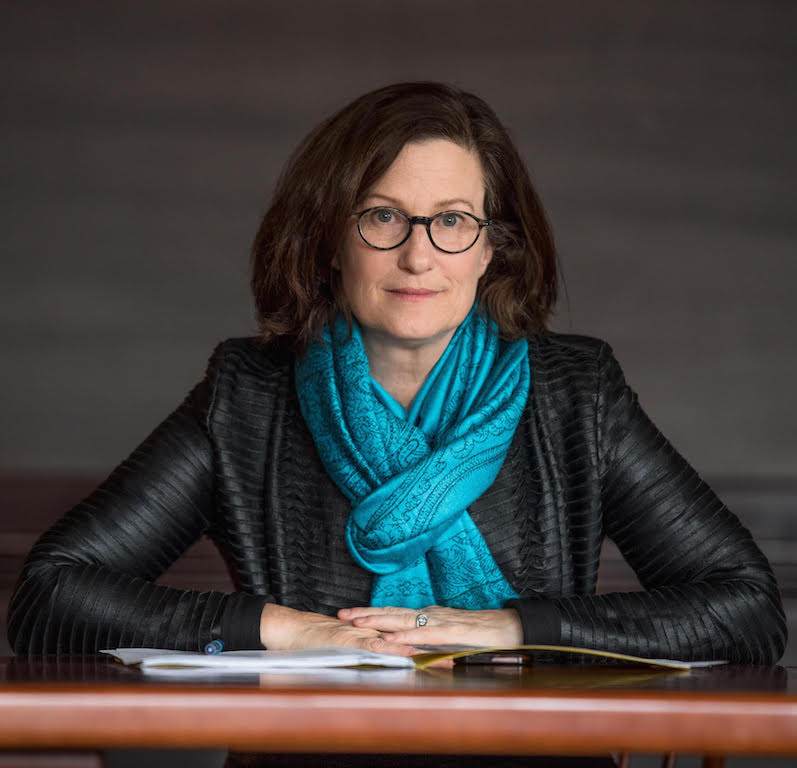 Nancy Duke Lewis Professor, Professor of Modern Culture and Media and Professor of Political Science
Nancy Duke Lewis Professor, Professor of Modern Culture and Media and Professor of Political Science
"What Literature Can Teach Politics: 'Moby-Dick' as a Critique of Hobbes 'Leviathan'"
Bonnie Honig is Nancy Duke Lewis Professor in the depts. of Modern Culture and Media (MCM) and Political Science at Brown University. She is author of Political Theory and the Displacement of Politics (Cornell, 1993), Democracy and the Foreigner (Princeton, 2001), Emergency Politics: Paradox, Law, Democracy (Princeton, 2009), Antigone, Interrupted. (Cambridge University Press, 2013) and Public Things: Democracy in Disrepair (Fordham University Press, 2017). She has edited or co-edited: Feminist Interpretations of Hannah Arendt (Penn State, 1995), Skepticism, Individuality and Freedom: The Reluctant Liberalism of Richard Flathman (Minnesota, 2002) the Oxford Handbook of Political Thought (Oxford, 2006), and, most recently, Politics, Theory, and Film: Critical Encounters with Lars von Trier (Oxford, 2016). She is currently at work on a new project called Refusal, to be published by Harvard University Press.
Jesse Shapiro (2016, Fall)
.jpg) George S. and Nancy B. Parker Professor of Economics
George S. and Nancy B. Parker Professor of Economics
"How to Talk Like a Republican, and Other Lessons From Using Text as Data"
Jesse Shapiro is the George S. and Nancy B. Parker Professor of Economics at Brown University. Prior to joining Brown University in 2015 he was the Chookaszian Family Professor of Economics at the University of Chicago Booth School of Business. Shapiro received his BA in economics in 2001 and his PhD in economics in 2005 from Harvard University. He is a Research Associate at the National Bureau of Economic Research, an editor of the Journal of Political Economy, and a former associate editor of the American Economic Journal: Applied Economics. He was a 2011-12 Alfred P. Sloan Research Fellow.
Jill Pipher (2016, Spring)
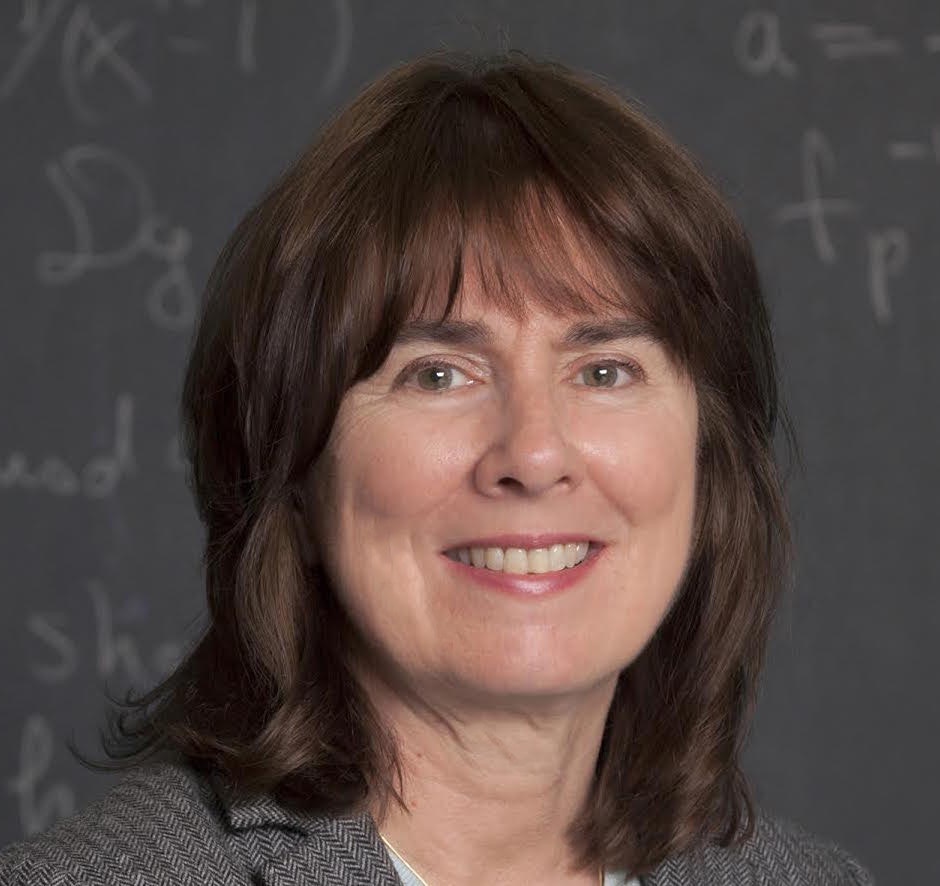 Elisha Benjamin Andrews Professor of Mathematics, Founding Director of the Institute for Computational and Experimental Research in Mathematics (ICERM)
Elisha Benjamin Andrews Professor of Mathematics, Founding Director of the Institute for Computational and Experimental Research in Mathematics (ICERM)
“Cryptography: From Ancient Times to a Post-quantum Age”
Jill Pipher received her Ph.D. from UCLA in 1985, spent five years at the University of Chicago and came to Brown in 1990 as an Associate Professor. Her research interests include harmonic analysis, partial differential equations and cryptography. She has published papers in each of these areas of mathematics, co-authored an undergraduate cryptography textbook, and jointly holds four patents related to the NTRU encryption algorithm. She was a co-founder of Ntru Cryptosystems, Inc, now part of Security Innovation, Inc. She has been awarded an NSF Postdoctoral Fellowship, an NSF Presidential Young Investigator Award, an Alfred P. Sloan Foundation Fellowship, and is an AMS Fellow. She served as President of the Association for Women in Mathematics from 2011-2013, and was a National Women’s History Month 2013 Honoree. In 2015, she was elected to the American Academy of Arts and Sciences.
David Kertzer (2015, Fall)
Nitsan Chorev (2015, Spring)
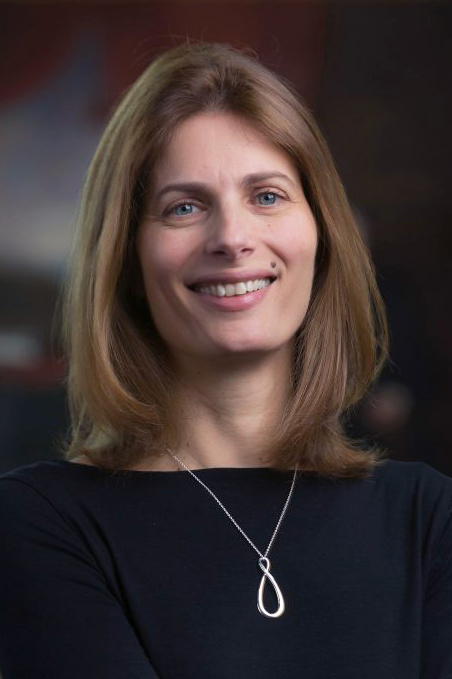 The Harmon Family Professor of Sociology and International Studies
The Harmon Family Professor of Sociology and International Studies
“Making Medicine in the Global Periphery: Pharmaceutical Production in Kenya, Tanzania and Uganda”
Chorev’s work in global political economy has examined the political foundations of current global economic processes, the political logic of international organizations and, most recently, issues related to access to medicines in poor countries. Chorev is the author of The World Health Organization between North and South (2012), and Remaking U.S. Trade Policy: From Protectionism to Globalization (2007) among other publications. She has been a member at the Institute for Advanced Study at Princeton, a fellow at the Woodrow Wilson International Center for Scholars, and a fellow at the UCLA International Institute.
David Berson (2014, Fall)
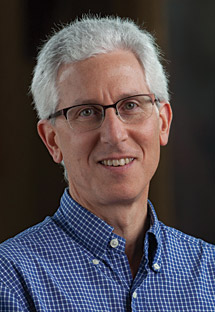 The Sidney A. Fox and Dorothea Doctors Fox Professor of Ophthalmology and Visual Sciences
The Sidney A. Fox and Dorothea Doctors Fox Professor of Ophthalmology and Visual Sciences
“Ways of Seeing”
David Berson has been at Brown for nearly his entire academic career, beginning with an undergraduate degree in Psychology. After earning a PhD in neuroanatomy from MIT in 1980, he returned to Brown for postdoctoral training in electrophysiology with Dr. James McIlwain. After a short stint at a research institute in Boston, he joined the Brown faculty in 1985, where he is now Professor in the Department of Neuroscience.
Berson’s research concerns the structure and function of the retina and its connections with the visual centers of the brain. His work has mapped and analyzed the multiple parallel channels of visual information linking retina to brain. He played a central role in the discovery in 2002 of a new class of retinal photoreceptors. Like rods and cones, these cells absorb light and convert it into neural signals, but they differ radically from rods and cones in design and functional role. They regulate biological rhythms, the pupil of the eye, mood and sleep as well as many other reflexive or unconscious physiological responses to light. Berson is a Fellow of the American Association for the Advancement of Science and is this year’s recipient of the Friedenwald Award from the Association for Research in Vision and Ophthalmology, in recognition of ‘outstanding research in the basic or clinical sciences as applied to ophthalmology.’
Charles Larmore (2014, Spring)
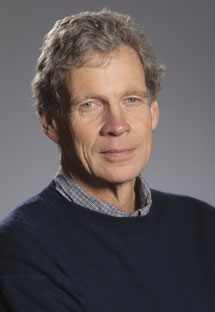 W. Duncan MacMillan Family Professor in the Humanities
W. Duncan MacMillan Family Professor in the Humanities
“The Ethics of Reading”
Charles Larmore has written widely about a number of different areas of philosophy, ranging from topics in moral and political theory to the nature of the self and the nature of reason. He is the author of ten books and more than one hundred articles in three different languages. His most recent book in English, The Autonomy of Morality, challenges some of the key ideas that have shaped the modern mind. The world, he argues, is not a realm of value-neutral fact, for our reason consists in being responsive to reasons for thought and action that arise from the world itself. His book, Les Pratiquesdu moi, received the “Grand Prix de Philosophie” from the Académie Française and recently appeared in English translation as The Practices of the Self. His latest book, Vernunft und Subjektivität, based on lectures he gave in Frankfurt, focuses on the intimate connection between reason and subjectivity. His wife Amey is a novelist, writing under the name of Laura Moore, and they have two children. A member of the American Academy of Arts and Sciences, Charles Larmore is the W. Duncan MacMillan Family Professor of the Humanities.
C.D. Wright (2013, Fall)
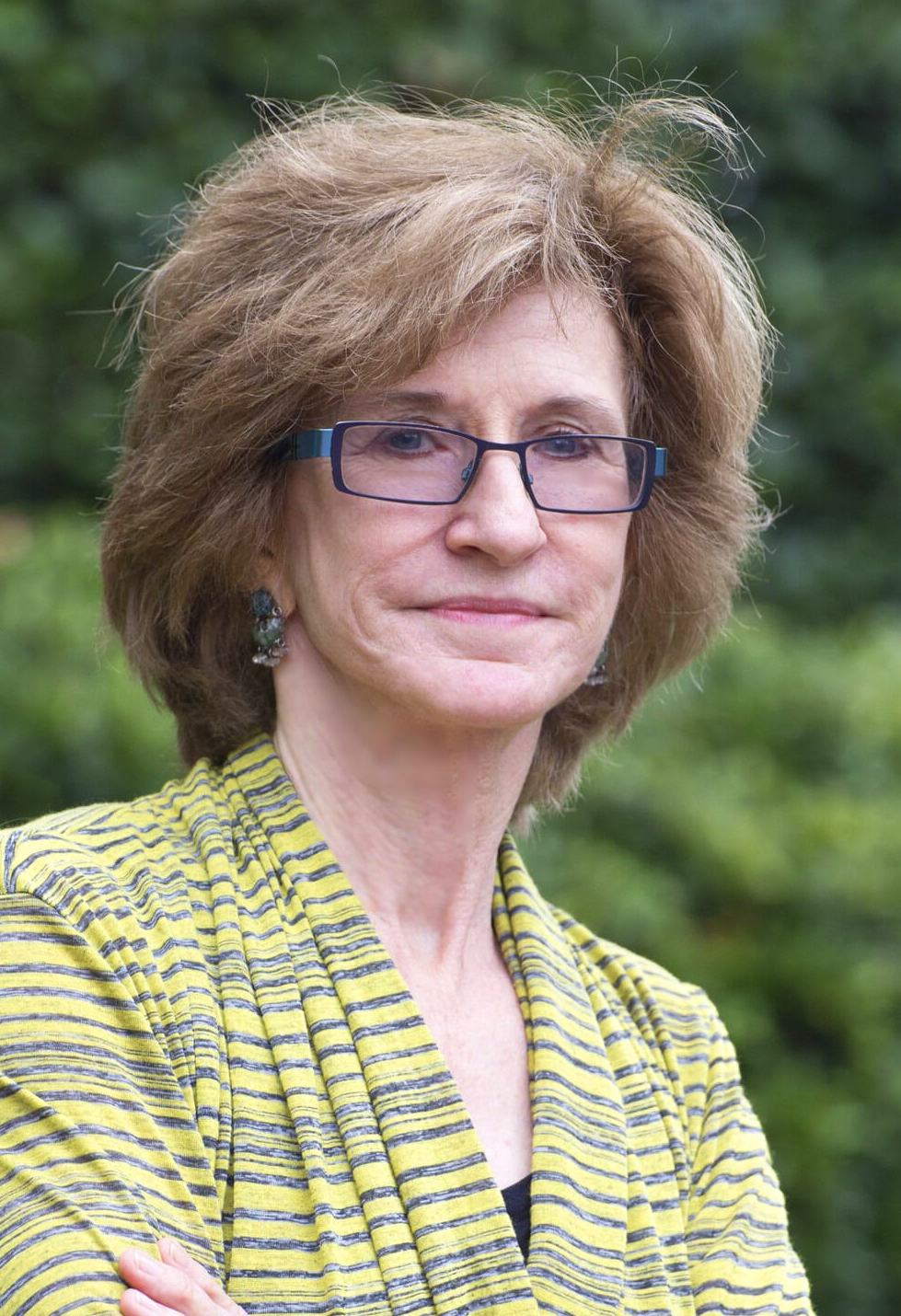 I.J. Kapstein Professor of Literary Arts
I.J. Kapstein Professor of Literary Arts
“What Can We Do to Bring the Ship Nearer to its Longing?”
C.D. Wright authored more than a dozen books, including One With Others [a little book of her days], which won the National Book Critics Circle Award and the Lenore Marshall Prize and was a finalist for the National Book Award. Intended as a tribute to an original, unsubduable friend, it also revolves around a particular series of events in the Arkansas Delta in 1969. A limited edition of her long poem Breathtaken with linocuts by Walter Feldman was published by Ziggurat in 2012. Her book Rising, Falling, Hovering won the 2009 International Griffin Poetry Prize. This work was situated along faultlines within the family, the beginning of the second Iraq War, illegal border crossings; Mexico’s magnetism despite enormous internal pressures and the response on the streets there to the US bombing of Bagdhad. With photographer Deborah Luster she published One Big Self: Prisoners of Louisiana, which won the Lange-Taylor Prize from the Center for Documentary Studies at Duke University. On a fellowship for writers from the Wallace Foundation she curated a “Walk-in Book of Arkansas,” a multi-media exhibition that toured throughout her native state. In 2004 she was named a MacArthur Fellow. Wright, the Israel J. Kapstein Professor of English and a professor of literary arts who had taught and written at Brown since 1983, died unexpectedly on January 12, 2016.
